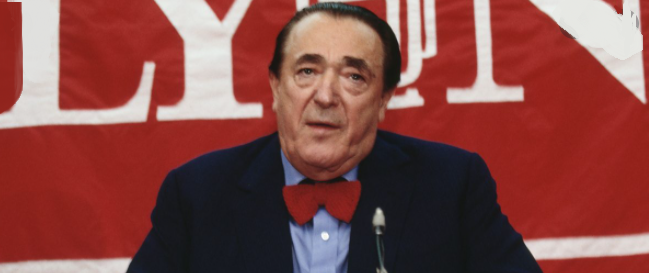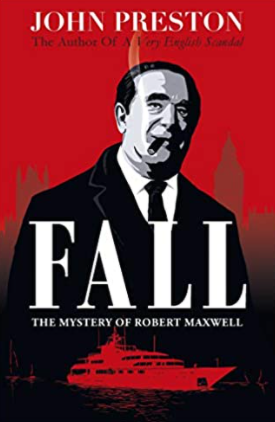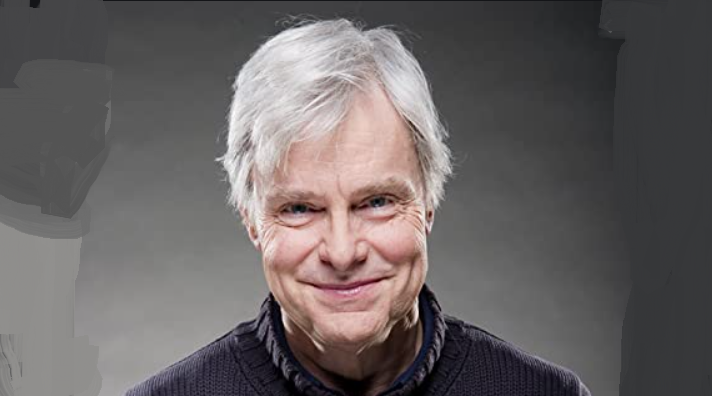
Extraordinary rise and scandalous fall of Maxwell



Robert Maxwell, the media mogul, and former MP made a triumphant entrance into Manhattan harbour aboard his yacht. The Lady Ghislaine, to complete his purchase of the ailing New York Daily News in February 1991. But ten months later, Maxwell disappeared from the same yacht off the Canary Islands, only to be found dead in the water soon afterward.
Born as an orthodox Jew, Maxwell was the embodiment of Britain’s post-war boom, who had escaped the Nazi occupation of Czechoslovakia fought in World War Two and was decorated for his heroism with the Military Cross. He went on to become a Labour MP and an astonishingly successful businessman, owning several newspapers and publishing companies. But soon after his death, his empire fell apart as long-hidden debts and unscrupulous dealing came to light. Within days, Maxwell was being reviled as the embodiment of greed and corruption. No one has risen fast and fallen so far and so quickly.
John Preston reveals what went wrong and how a war hero and model of society become reduced to a bloated, amoral wreck and his extraordinary rise and scandalous fall.
In 1988, Peter Jay- Maxwell’s chief of staff and last-minute stand-in for his unpredictable boss = still struggling to secure entry to America, pleading “But I used to be the British ambassador to the US”. The real significance was that the debt incurred for acquiring two US companies was the cause of the Maxwell empire’s collapse three years later – a $2.5bn in a hostile bid for the US publisher Macmillan: $750m for Official Airline Guides – but enough to bring down his web of 800 companies, most privately held and many based in Liechtenstein, a construction that held public scrutiny at bay for years.
He had been juggling for cash to service the debt, and secretly buy shares to prop up the stock prices of his public companies as shares were banks’ security for the loans. The collapse revealed that Maxwell had raided the cash in his companies’ bank accounts and borrowed the share in their pension funds including those of Mirror Group Newspapers.
John Preston charts the most extraordinary figures in British corporate life. Maxwell’s daughter Ghislaine is now in jail in New York, charged with procuring girls for sex with the late financier Jeffrey Epstein ( which she denies).
Preston explains she was always the adored youngest child, and often overlooked is the commotion of her parents’ lives.
Preston looks back on his story and the fraud as a great, sweeping whole, a bridge from the second world war to the last years of the media tycoons before the internet began. Maxwell with his booming voice and imposing presence when newspapers still boasted big print circulations, which in turn brought influence and power.
Maxwell’s parents, three siblings, and grandfather were gassed or shot in Auschwitz, his son Ian once found him crouched close up to a TV set showing a grainy newsreel of the camp, saying, “ I’m looking to see if I can spot my parents”.
The suffering of childhood fuelled his later drive and appetite. He would break the padlock that this wife had attached to the pantry to raid it, one-night eating, a pound of cheese, a jar of peanut butter, two jars of caviar, a loaf of bread, and a whole chicken in one go” according to his wife.
He thrived in the chaos of the war and its aftermath, and with real genius spotted the potential of the scientific journals, unpublished during the war, which became his first major business, Pergamon Press.
He managed to accumulate an astonishing array of businesses, from the printing works to a football club, although Rupert Murdoch repeatedly beat him in the quest for prized newspaper titles. In 1984, Maxwell finally triumphed when he managed to buy the mass-market Daily Mirror – calling an instant board meeting at 1 am when the sale went through.
Maxwell’s wife Betty emerges as one with a real gift. When the DTI in 1971, delivered its too-memorable judgment, she wrote to him: “ If you feel that we must… live elsewhere or emigrate to China or live underground or in a treetop, I am game”.
Maxwell’s rivalry with Murdoch as the motivation for the calamitous US takeovers, and claiming a convergence of threats such as disclosures of bank share sales on the day Maxwell died in discussing whether these might have prompted the suicide.
His two sons Kevin and Ian were charged and acquitted. Maxwell was drawn into doing or tolerating things that were unwise or illegal. The Public outcry forced banks to return much of the missing pension wealth and protections for the assets in pension funds were then tightened.
Nobody knows did he fall, or did he jump?
Fall: The Mystery of Robert Maxwell by John Preston, Viking, £18.00, 352 pages.
